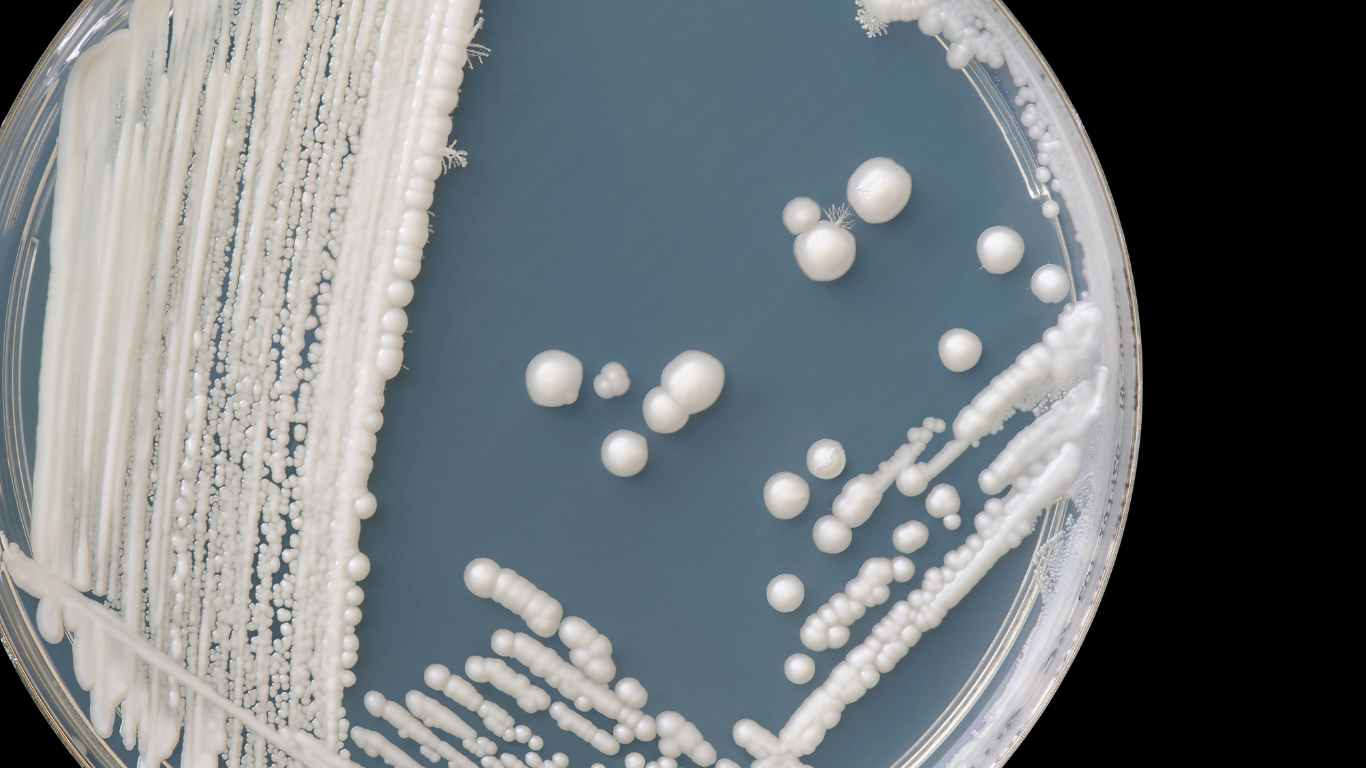Intestinal Candidiasis – what is it and how can nutritional therapy support?
Intestinal candidiasis can have a significant impact on the gastrointestinal system and overall health. Read on to find out what it is, the symptoms to be aware of and how nutritional therapy can support your journey to better health.
By Neil Bridgeman
May 11, 2023 • 6 min read

What is Intestinal Candiasis?
Intestinal candidiasis is an infection caused by an overgrowth of Candida species in the digestive system.
Candida is a group of yeasts that are commonly found in the human body. Candida yeasts are a normal part of the human microbiota, which refers to the collection of micro-organisms that live in and on our bodies. It normally lives in the gastrointestinal tract along with other microorganisms, and at normal levels helps to promote gut health, nutrient absorption and aid digestion.
In healthy individuals, candida yeasts are typically kept in check by the immune system and other beneficial bacteria and fungi that inhabit the body. However when the balance of microorganisms is disrupted, Candida can overgrow and cause an infection. This overgrowth can be caused by a weakened immune system, certain medications (such as antibiotics), certain medical conditions and a diet high in sugar and refined carbohydrates.
“Symptoms can include abdominal pain, bloating, gas, diarrhoea, and constipation.”
What are the symptoms?
Candida infections can occur in various parts of the body, including the mouth (oral thrush), skin, nails, genital area (yeast infections), and bloodstream (candidemia). Symptoms can vary depending on the location of the infection, but may include:
- Fatigue and malaise
- Gastrointestinal (GI) bloating, gas and cramps
- Constipation or diarrhoea
- Nausea and vomiting
- Vaginal yeast infections, oral thrush infections
- Allergies and/or low immune function
- Carbohydrate cravings
- Poor concentration
In the gastrointestinal system, intestinal candidiasis can affect the lining of the intestinal wall, causing inflammation and irritation. This can lead to symptoms such as abdominal pain, bloating, gas, diarrhoea, and constipation. Additionally, the overgrowth of candida can cause the lining of the intestines to become more permeable, allowing toxins and undigested food particles to leak into the bloodstream. This condition is known as leaky gut syndrome and can cause a wide range of symptoms throughout the body, including fatigue, brain fog, joint pain, and skin problems.
Intestinal candidiasis can also interfere with the normal digestion and absorption of nutrients in the gut, which can lead to nutrient deficiencies and further health problems. For example, candida overgrowth can inhibit the absorption of minerals such as magnesium, calcium, and zinc, as well as vitamins such as vitamin B12 and vitamin D.
Overall, intestinal candidiasis can have a significant impact on the gastrointestinal system and overall health.
“Confirmation of intestinal candida is typically obtained through comprehensive stool testing.”
How can nutritional therapy support?
Nutritional therapy is an integral tool to help to support the body in dealing with an intestinal candidiasis infection, as it helps to support balance to the digestive system and improve overall health. Confirmation of intestinal candida is typically obtained through comprehensive stool testing. Once confirmed, a dietary as well as supplementary protocol is typically designed to help support the eradication of candida and restore balance.
Generally, a low-sugar, anti-inflammatory diet is recommended as high sugar intake can feed candida growth and exacerbate symptoms. Additionally, it is important to consume plenty of fibre (such as from vegetables and whole grains) to promote healthy gut bacteria growth. There will also be a combination of antimicrobial supplementation and pre and probiotics to restore the balance of microorganisms in the gut.
Prebiotic supplements provide food for beneficial bacteria in the gut, while probiotic supplements contain live cultures of beneficial bacteria that help to restore bacterial balance in the digestive tract. Postbiotic supplements contain compounds produced by beneficial bacteria which may have health benefits such as reducing inflammation or improving nutrient absorption.
